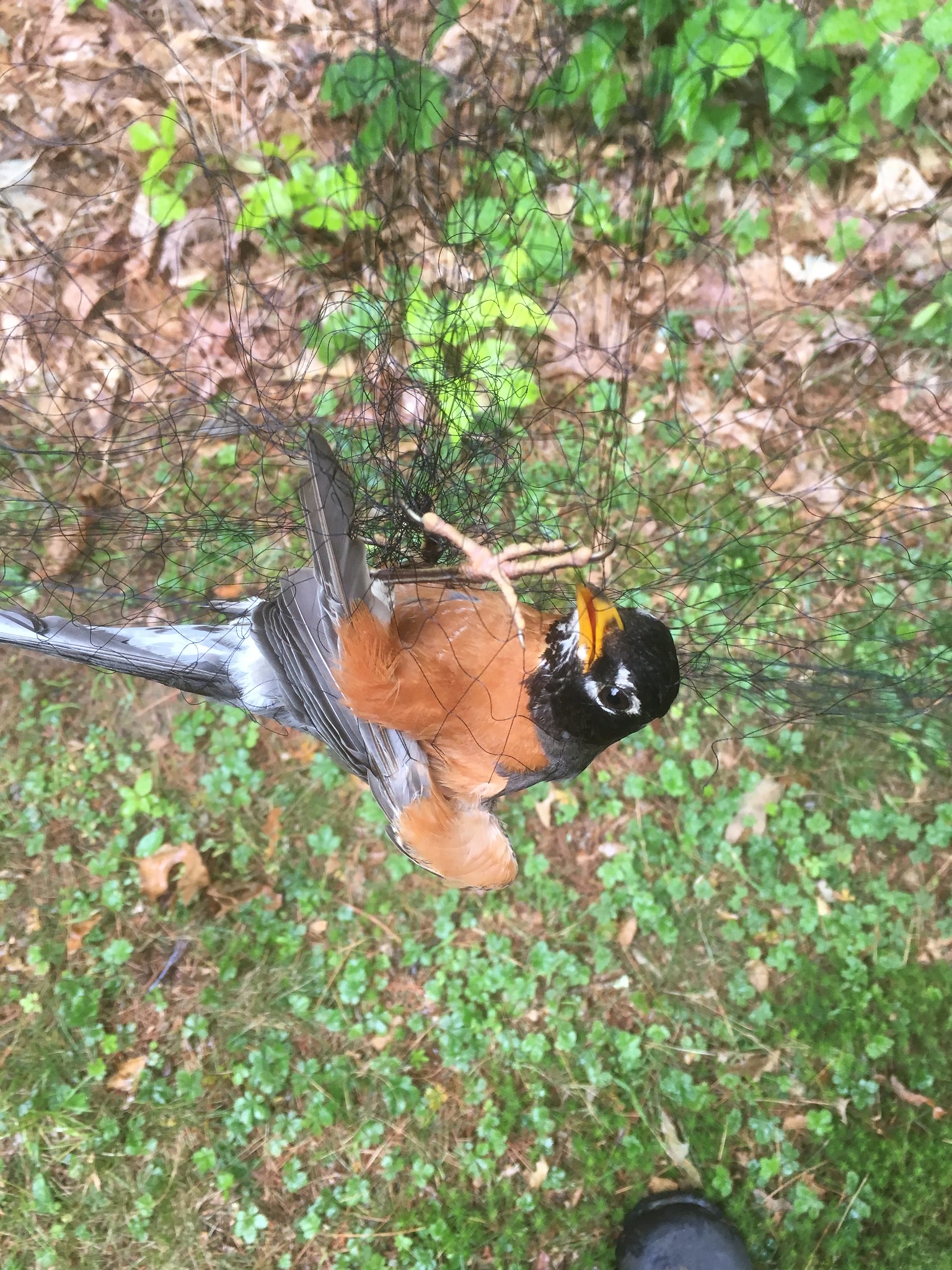 |
| American Robin in net, home, Belchertown, MA, July 7, 2017 |
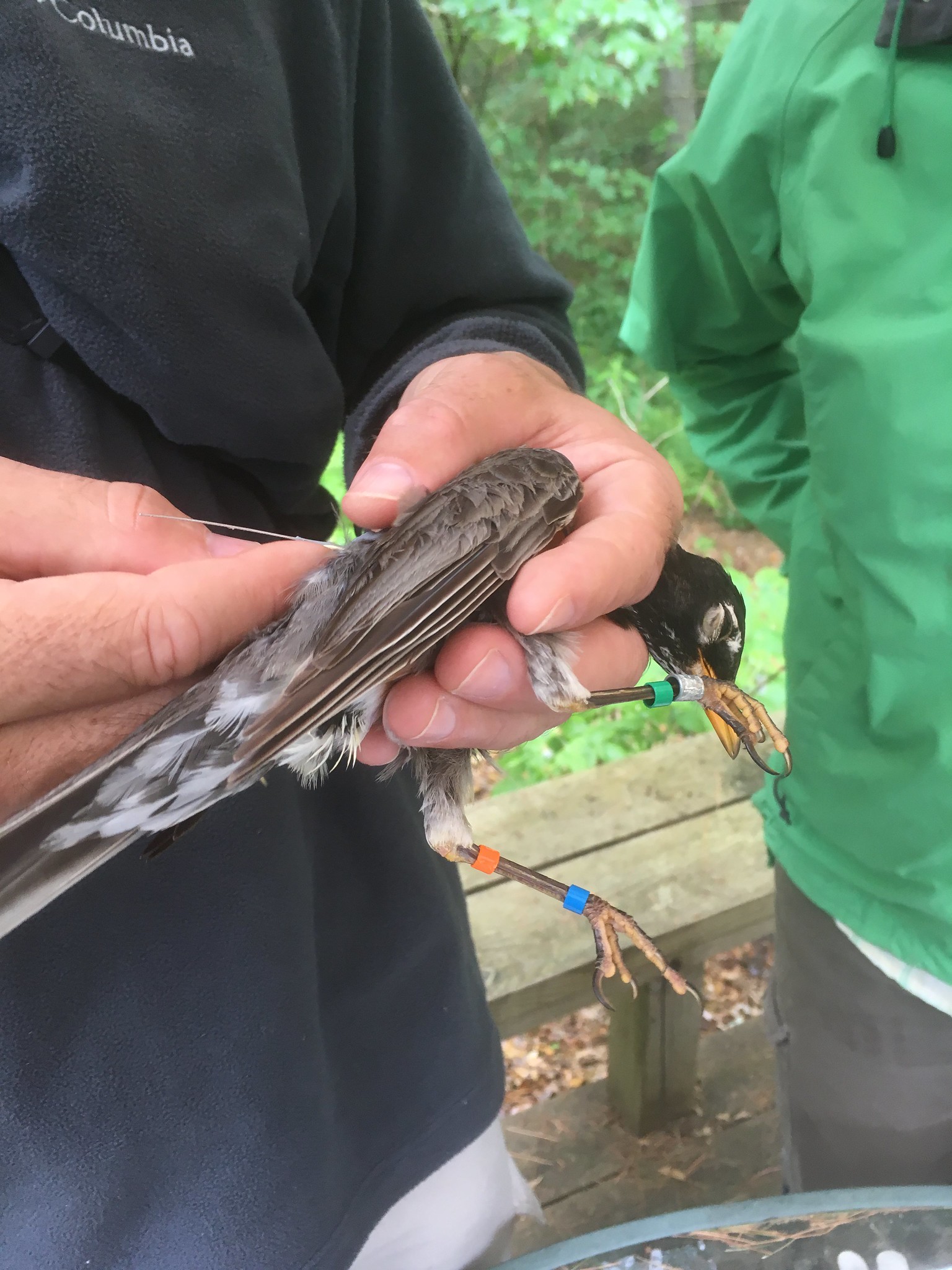 |
| American Robin with leg bands and GPS tag, home, Belchertown, MA, July 7, 2017 |
 |
| American Robin with GPS tag, home, Belchertown, MA, July 7, 2017 |
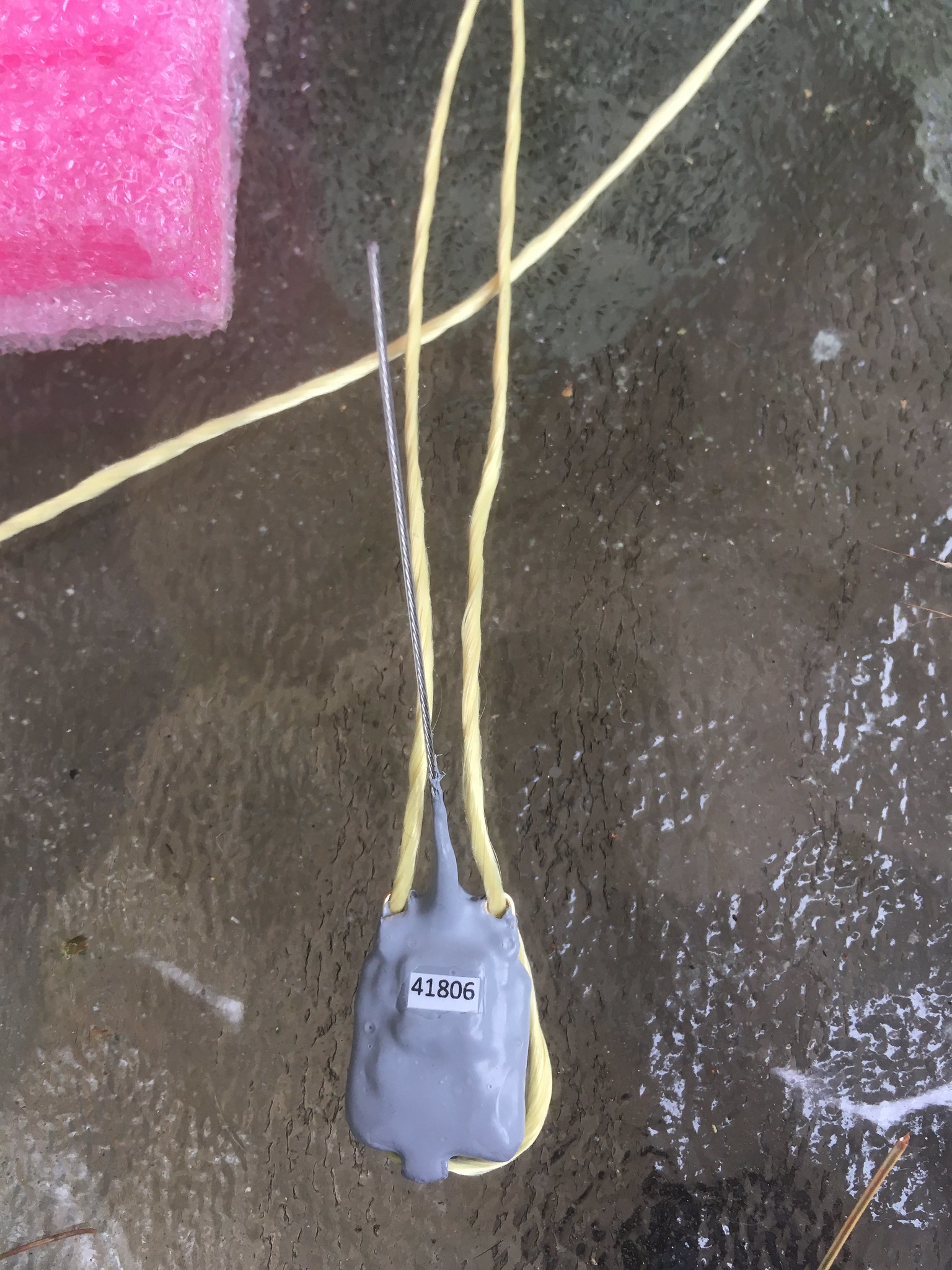 |
| GPS tag ready for a host, home, Belchertown, MA, July 7, 2017 |
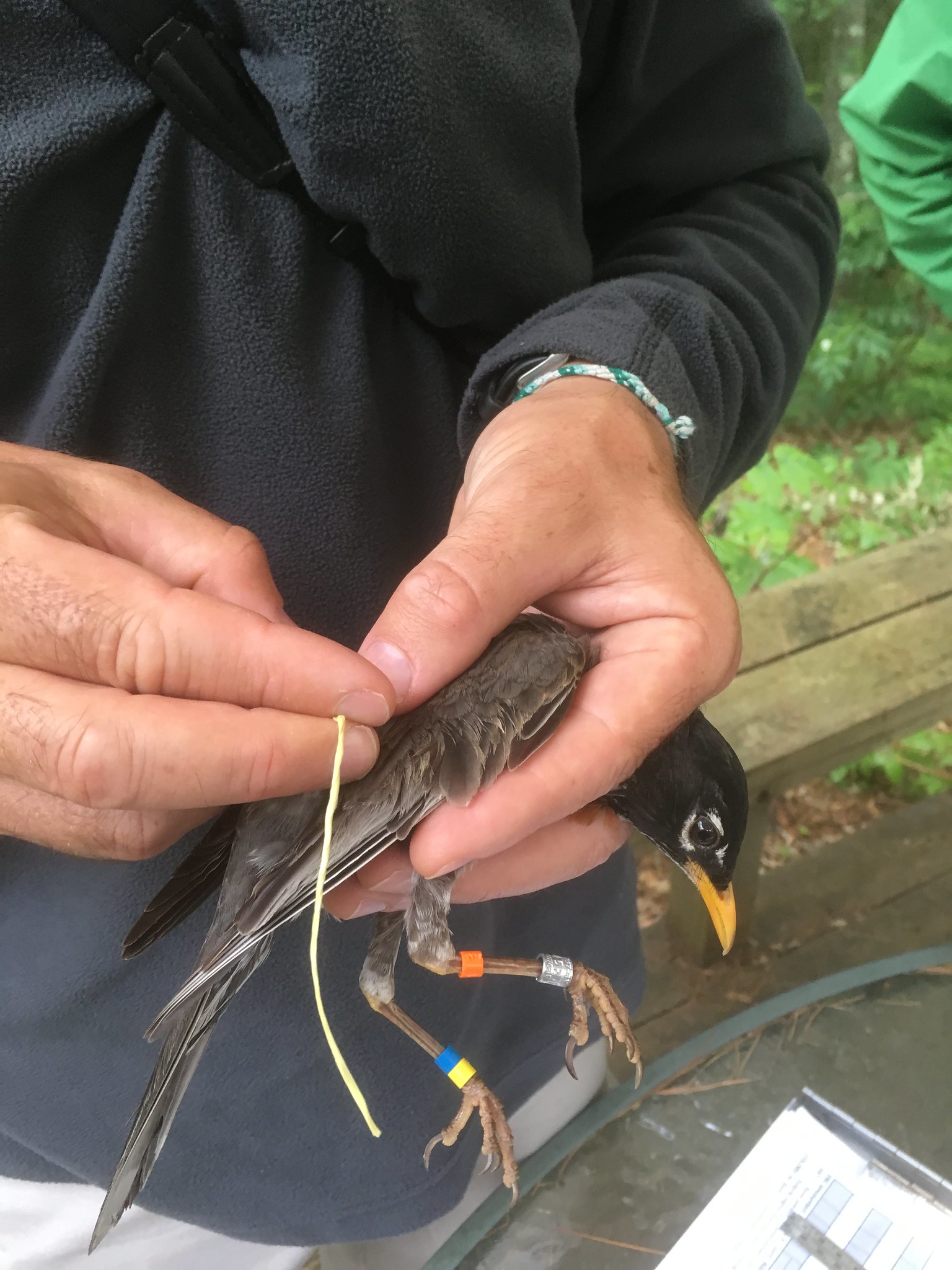 |
| American Robin with leg bands and GPS tag, home, Belchertown, MA, July 7, 2017 |
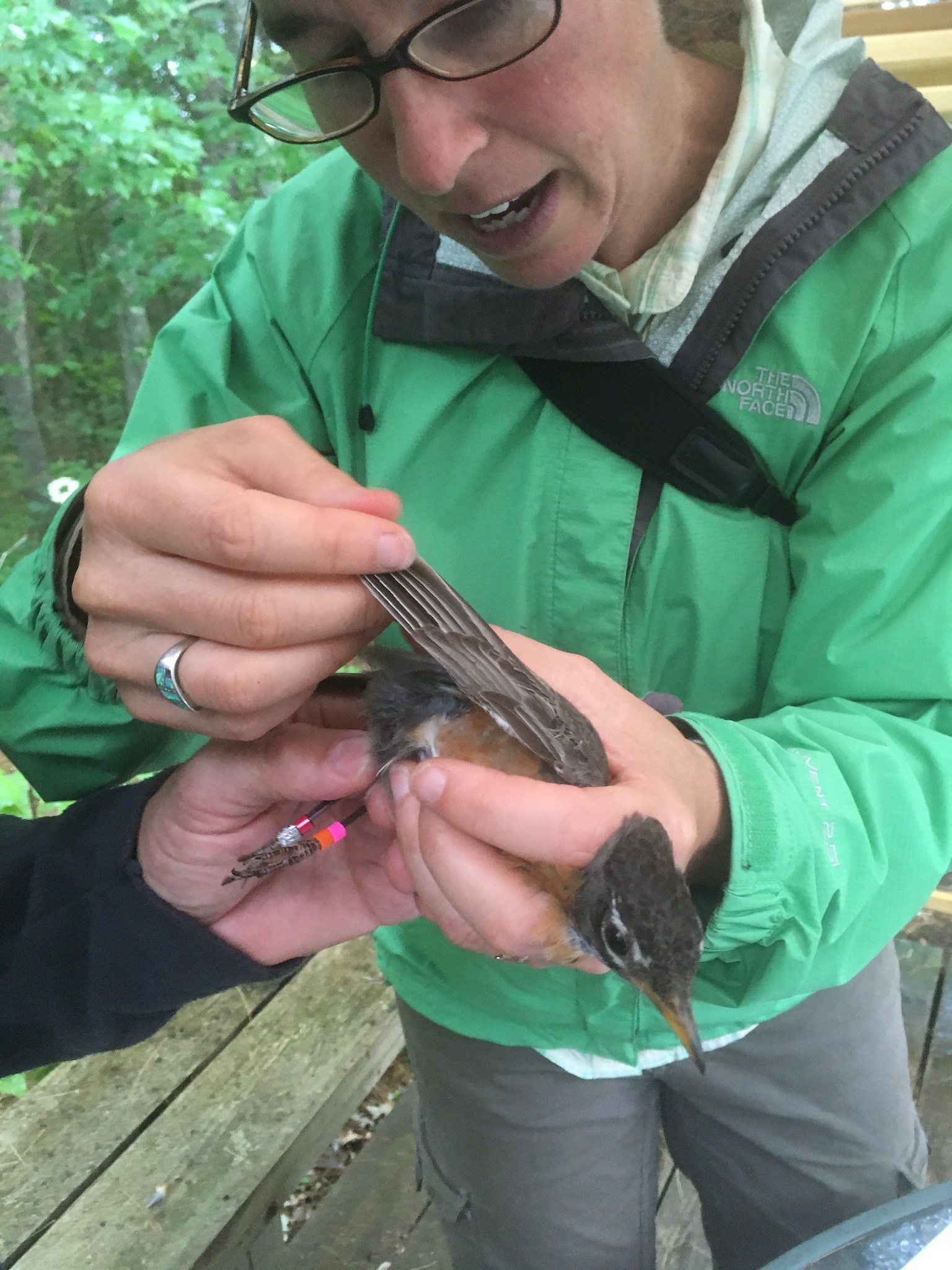 |
| American Robin with leg bands and GPS tag, home, Belchertown, MA, July 7, 2017 |
This morning Susannah and Alex Jahn stopped by the yard to try to capture some American Robins to attach GPS locators to as part of an ongoing study associated with the Neighborhood Nestwatch program. Below is a portion of the e-mail I got regarding this study:
"We are expanding our Gray Catbird study and the GPS tags, and hope to place about 10 GPS tags on robins. This is an exciting opportunity to better understand where one of our most iconic backyard bird spends the winter. The GPS tags are about the size of a dime and we attach them to the birds via a little backpack harness. The challenge is that we need to recapture the birds next year to recover the GPS tag and then download all the data. The technology is so cool that we will be able to pinpoint, within about 20 feet, where these birds spend the winter. Thus far, we've recovered 4 out of the 15 GPS tags from the catbirds. It's pretty exciting!
Alex Jahn, a scientist from the Smithsonian Migratory Bird Center in DC, is leading the project."
They arrived around 7AM with the weather conditions overcast with occasional showers but decent enough weather to try to get some birds. Once the first net was up and an audio lure placed, a male robin as well as a Northern Cardinal were quickly captured and another robin bounced off the nets without being caught. The robin quickly received both leg bands and a GPS tag and was then released. Before moving the nets two more robins were caught as was a Blue Jay. As only one of the two robins caught was an adult only one bird got bands and a GPS tag. As the weather continued to become more and more rainy they moved the nets to a new location and caught yet another robin but this one was a female. All three robins caught did not have bands so somehow the two banded individuals I have had regularly around the yard evaded recapture today. By this point the rain had increased to a near downpour so the banding ended for the morning. Despite not capturing the previously banded robins we had some good results with three birds receiving the GPS tags. Now we just have to until next spring to see if they return and recapture them to remove the GPS unit to see where they have been. Fingers crossed they all have a safe journey over the next several months.
 |
| Mourning Warbler, Quabbin Park, MA, July 6, 2017 |
 |
| Mourning Warbler, Quabbin Park, MA, July 6, 2017 |
On my way home from work yesterday morning I stopped by Quabbin Park and found the Mourning Warbler still in the same location (I also had it the morning of July 4th). I was calling occasionally and flying around a few hundred foot area and even stopped briefly along a guardrail and I got a few shots through the binoculars with my phone. It has now been in the area since at least July 2. It is truly unusual for this species to be this far south and east and at such a low elevation in an apparent breeding attempt.
 |
| American Woodcock, Prescott Peninsula, New Salem, MA, July 6, 2017 |
I also made an evening trip onto Prescott Peninsula on the fourth to check a few previously unchecked locations for Eastern Whip Poor Wills and found a few outside the areas covered by my annual survey. Other nocturnal birds included a couple American Woodcocks and a couple Barred Owls calling back and forth.









No comments:
Post a Comment